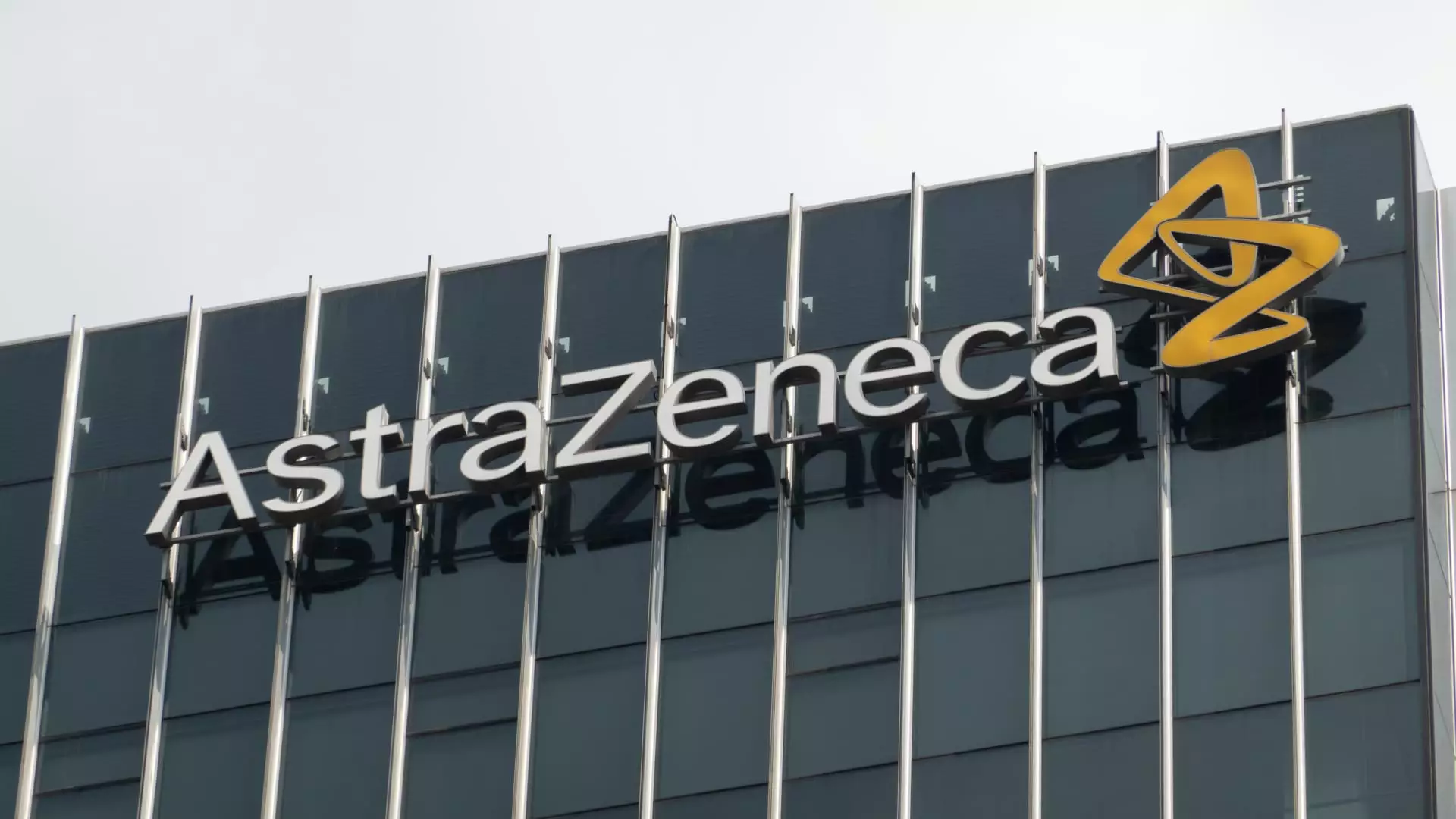In an ambitious move that underscores the shifting landscape of global pharmaceutical manufacturing, AstraZeneca’s announcement to invest $50 billion in U.S. facilities by 2030 is more than just a corporate expansion—it’s a bold declaration of market dominance. While on the surface this appears to be an optimistic investment in innovation and job creation, beneath the veneer lies a complex cocktail of geopolitical ambitions, economic nationalism, and the vulnerability of global supply chains. This decision illustrates a nuanced reality: the pharmaceutical industry, long a symbol of scientific progress, is increasingly intertwined with the politics of protectionism, and AstraZeneca’s actions are a testament to this increasingly turbulent environment.
AstraZeneca’s focus on establishing its largest manufacturing hub in Virginia, including a multi-billion-dollar facility dedicated to metabolic and weight management drugs such as oral GLP-1 therapies, raises critical questions about the true motivations behind such massive capital deployment. Is this purely an effort to streamline operations and leverage cutting-edge AI and automation? Or is it a calculated move to hedge against escalating trade tariffs and political uncertainties? Given that U.S. policies, particularly around tariffs and drug pricing, are becoming more aggressive, this investment could be viewed as an insurance policy—aimed not only at tapping into the lucrative American market but also at gaining leverage in global negotiations.
Furthermore, AstraZeneca’s commitment to expand research and development facilities across multiple states signifies a strategic shift toward fostering innovation within a protected national framework. This localization of production and research reflects an implicit acknowledgment that global supply chains—once taken for granted—are fragile and vulnerable to geopolitical disruptions. But at what cost? These investments, while promoting domestic jobs and technological advancements, risk exacerbating nationalist tendencies that could stifle international collaboration, diminish drug affordability, and foster a climate of mistrust among global partners.
Industry Consolidation or Nationalistic Chicanery? A Delicate Balance
This move by AstraZeneca is part of a broader pattern among major pharmaceutical players, including Novartis, Sanofi, Roche, Eli Lilly, and Johnson & Johnson. Their collective push to bolster U.S. manufacturing aligns closely with the Trump administration’s aggressive trade stance and focus on reshoring domestic production. While the industry’s rhetoric emphasizes security of supply and innovation, critics argue that it’s also an act of strategic positioning—an attempt to insulate themselves from potential tariffs that threaten to inflate costs and disrupt global operations.
The ramifications extend beyond pure economics. The hinted possibility of AstraZeneca and other firms relocating their stock listings from London or Switzerland to the U.S. signifies a shift not only in investment but in influence. This potential migration could weaken the U.K.’s financial markets and further entrench the U.S. as the global hub for biotech innovation and finance. But at what expense? The global nature of pharmaceutical innovation, historically dependent on cross-border cooperation, is becoming increasingly territorialized. Protective tariffs, coupled with political pressures, risk fragmenting a sector that thrives on open collaboration and shared scientific breakthroughs.
Additionally, the threat of tariffs—possibly up to 200%—targets not just profits but the very essence of global health cooperation. Alarm bells are ringing over whether this trend could hinder affordable access to life-saving medicines worldwide. It raises the uncomfortable question: Are these investments driven by genuine innovation needs, or are they veiled efforts to manipulate market forces in favor of the U.S.? A centrist liberal perspective recognizes the importance of safeguarding global health interests without capitulating to protectionist whims that could restrict the flow of essential medicines.
AstraZeneca’s aggressive investment strategy marks a pivotal moment in the ongoing reshaping of the global pharmaceutical landscape. While undeniably a boon for domestic manufacturing jobs and technological advancement, it also embodies a broader trend of economic nationalism that threatens international cooperation. The drive to reshape where and how medicines are produced is fueled by a mix of genuine innovation, political strategy, and economic self-interest. This complex interplay warrants careful scrutiny from those who believe that a balanced approach—one that prioritizes both American innovation and global health equity—is essential for sustainable progress.
The future of global health hangs in the balance, as industry giants position themselves not merely as scientific pioneers but as geopolitical actors. AstraZeneca’s move is a gamble—one that could solidify U.S. dominance but also deepen divisions and complicate the fragile harmony of international pharmaceutical collaboration. Whether this is a necessary evolution or a perilous turn towards economic fragmentation remains to be seen, but one thing is clear: the stakes have never been higher.

